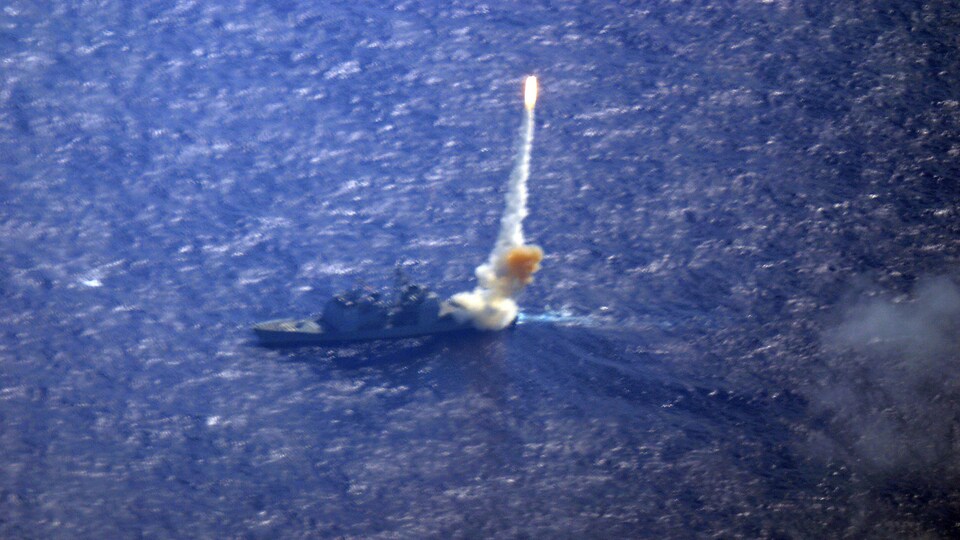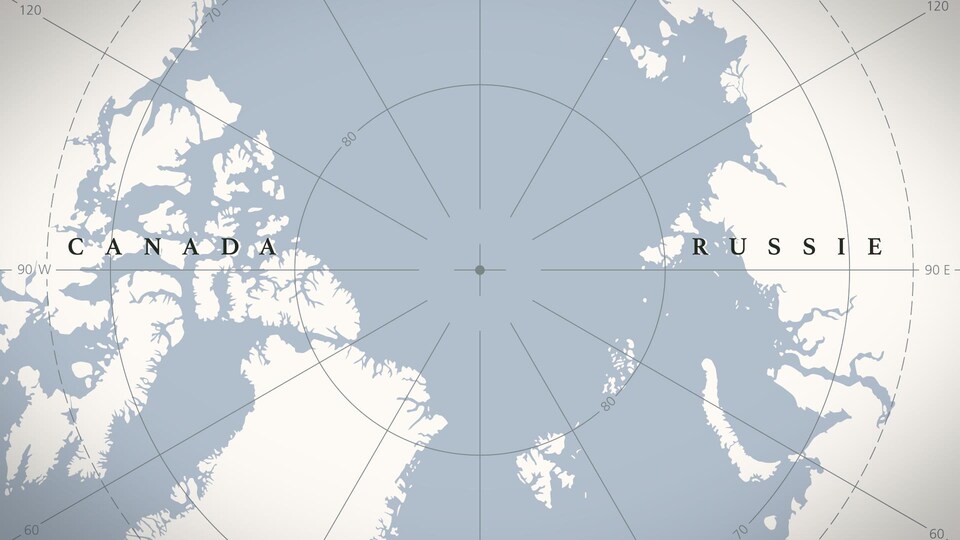Unlike the United States, Canada has no equipment to intercept missiles. And if Vladimir Putin sends an intercontinental missile in our direction, the Americans are not obligated to defend us.
The reason is simple: Canada has never joined the American missile defense program. But Russia’s invasion of Ukraine was a game-changer and Ottawa re-assessed its intercontinental defense policy, including its stance on the U.S. missile shield.
This technology was deployed under George W. Bush shortly after the attacks on September 11, 2001. The American president was inspired by an ambitious dead project by one of his predecessors, Ronald Reagan. He had the idea, in the 1980s, to create a shield above the United States with interceptor missiles that would have been installed in space on satellite boards.
This project never saw the light of day because, technically, it was not feasible at the time. It would have been too expensive: we couldn’t do it. But the idea emergedsaid Jonathan Paquin, professor of political science at Laval University.
After the destruction of the twin towers in New York, President Bush decided to pursue a similar project, but which would include interceptor missiles installed on land and on ships in the Atlantic and Pacific rather than space.
On land, these interceptors are located on the east coast of the United States, particularly on Cape Cod, in Massachusetts, as well as in the west, in California, according to Mr. Paquin. Not in Canada.
These interceptor missiles work in conjunction with a system of radar satellites. If a conventional enemy missile is launched toward the North American continent, a radar will detect it, estimate its point of impact and trigger, if necessary, the firing of an interceptor missile to destroy it in flight.
” It’s pretty much like the Americans have developed a military program that will make it possible, with a rifle bullet, to hit another rifle bullet in full flight. It is technologically high flying and it is very expensive. “
Since the United States has formed an intercontinental defense alliance with Canada since the Cold War, the North American Aerospace Defense Command (NORAD), the Americans were quick to consult with Ottawa on whether it would agree to participate in the missile shield.
However, for reasons the rulesthe Liberal government decided at the time not to invest in land and sea radar networks.
In 2005, Paul Martin is at the head of a minority government. And the Quebec wing of the Liberal Party of Canada is slightly against the inclusion of the anti-missile shield. We felt that this would help the growth of international tensions and that it could lead to the militarization of the galaxy. […] That’s why Paul Martin saw fit to simply refuse the Americans so as not to worsen the situation within his party in order to win the majority election … which he didn’t get, in the end.recollection of Jonathan Paquin.
Indirect participation
This decision did not please President George W. Bush, but Canada and the United States agreed that it was satisfactory – at the time – for both parties.
Although the United States would prefer to include the anti-missile shield in NORAD devices, they decided to pilot it on their own and made sure they could still use the information sent by Canada.
And this is where there is an important nuanceJonathan Paquin insists: in fact, Canada has accepted, within the framework of an agreement with the Americans, to transfer information that reaches it from missile detection satellites to another unit, the United Northern Command States.
Since Canada is not part of the missile shield, the United States has the power to decide on its own whether or not to fire an interceptor to detonate a missile in the air.
So Canada is not an official member of the missile shield, but because we play an important role in the missile detection phase within NORAD and that we sent this information to US Northern Commandwell, we are participating in the American defense system, which could lead the Americans to use the anti-missile shieldexplained Mr. Paquin.
” If there were to be a missile in North America, Canadians and Americans would take the information within NORAD, but Canadians can’t decide if we’re going to block it, because we’re not part of the program, we didn’t pay for it. And there are no interceptors on Canadian territory. “
Again, a safe bet that Americans will try to block anything approaching North American territory, because imagine if there would be a big explosion in a big Canadian city! Our economies are interconnected, we are partners, allies. So a missile aimed at Canada is likely to be seen by Washington as a missile aimed at the continent of North America and therefore the United States. But we have no guarantee, we have no certaintyadded the Laval University professor.
Ottawa’s participation in the American anti-missile shield could result in the installation of land and maritime interceptor missiles in the territory and in Canadian territorial waters, particularly in the Far North. The Americans have Alaska, but interceptor missiles in northern Canada will gain momentum in terms of possible interception. of a missile from Russia, for example.
Ottawa could also, according to Mr. Paquin, conclude an agreement with Washington that would not include the installation of interceptors in Canada but which would include investments for the modernization of radar and satellite lines.
Currently, the NORAD cannot identify incoming hypersonic missiles [que possède la Russie, NDLR] because our radar system is obsolete. So they need to be modernized.
In 2014, a report by the Standing Committee on National Defense unanimously recommended that Ottawa participate in the American missile shield. However, in its defense policy published in 2017, Canada has still not decided on this effect, Mr. Paquin underlined.
If the Putin regime’s behavior and the Kremlin’s aggressive declarations don’t convince the Canadian government today to include the anti-missile shield, I don’t quite see what it can convince.
Source: Radio-Canada

